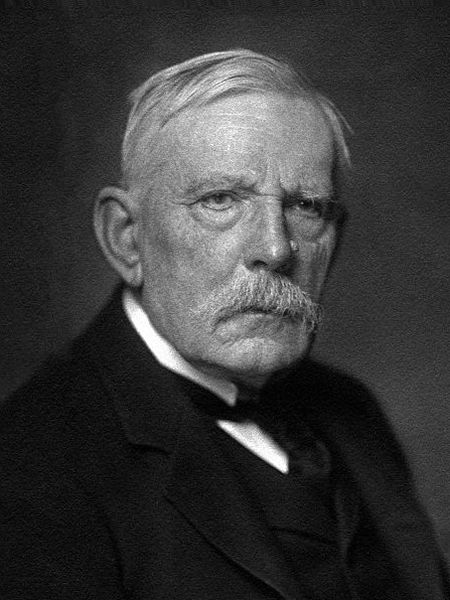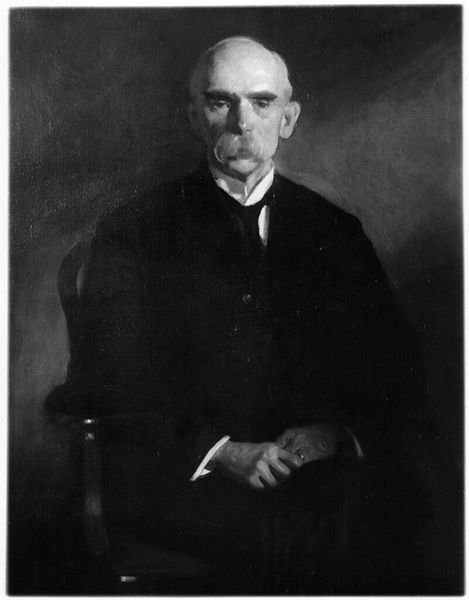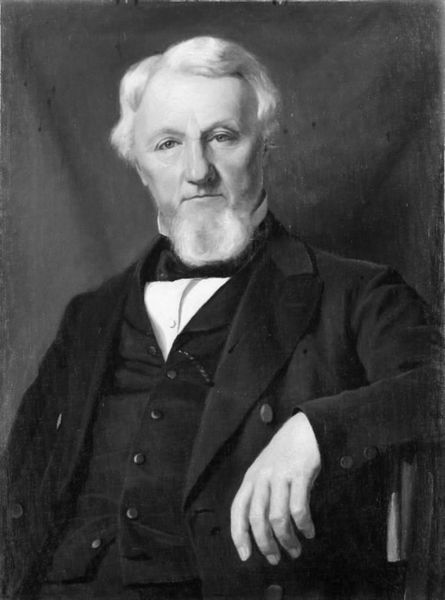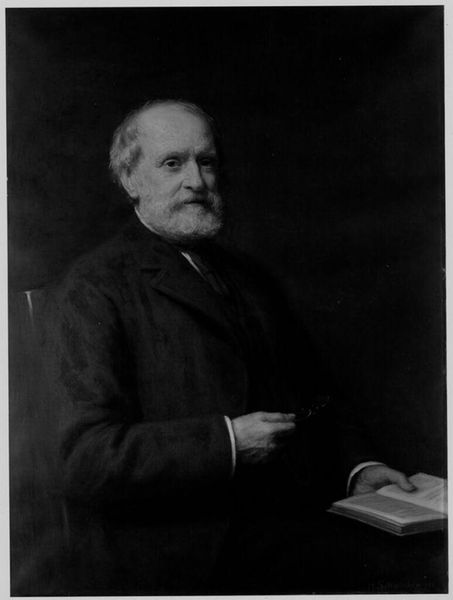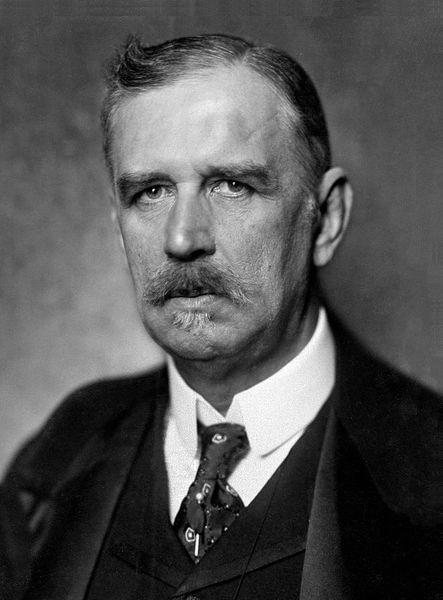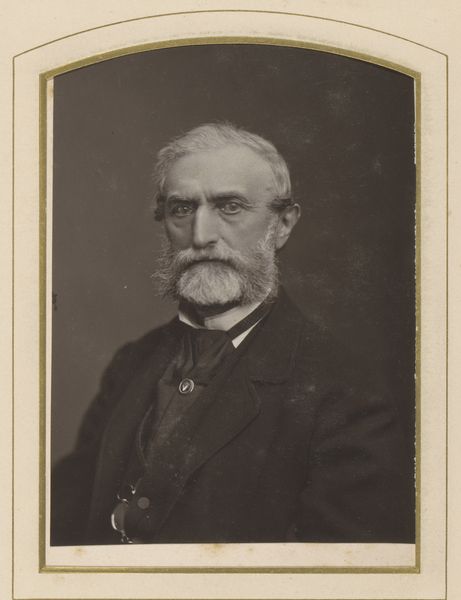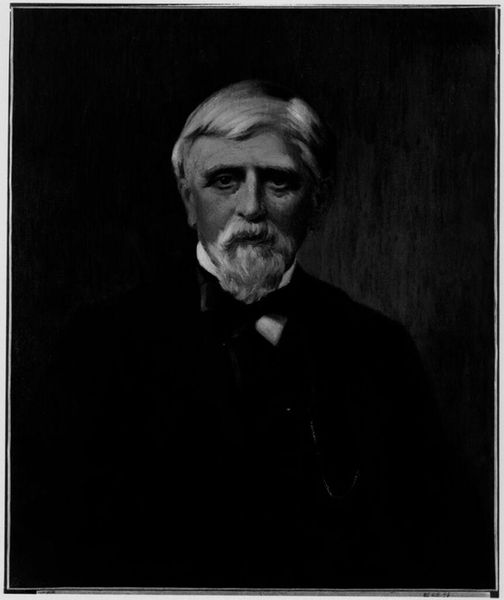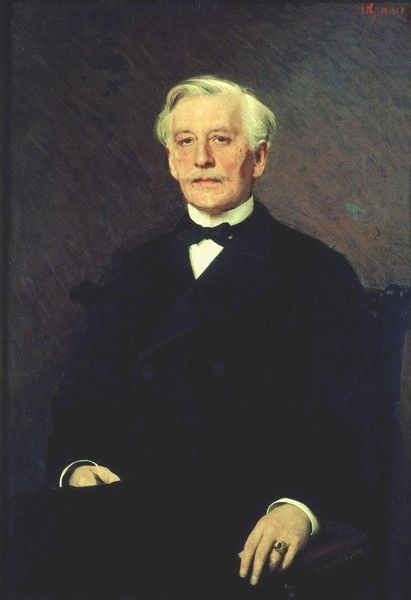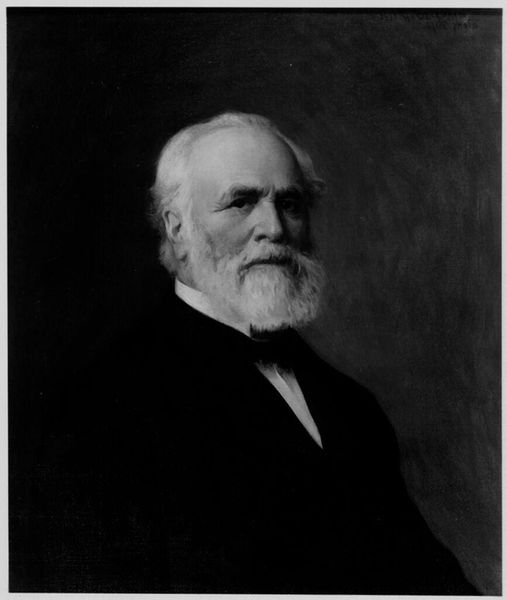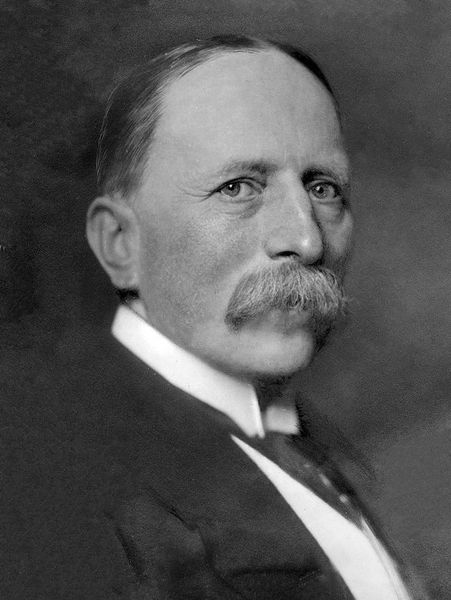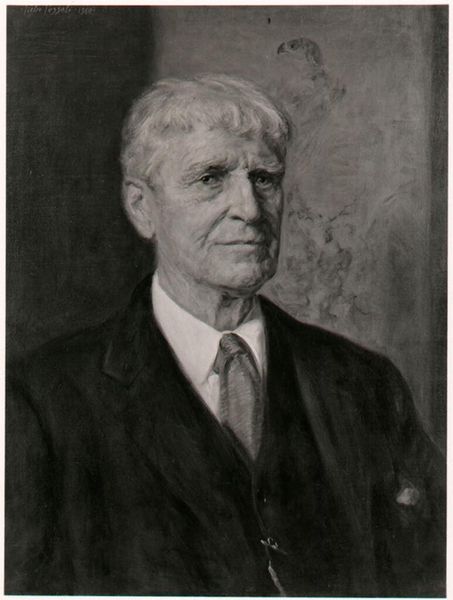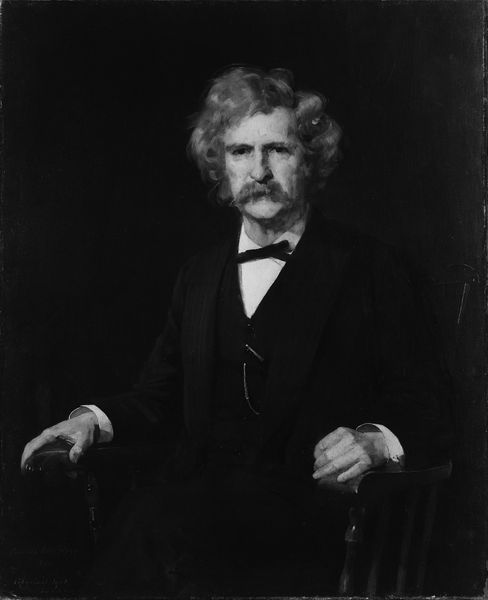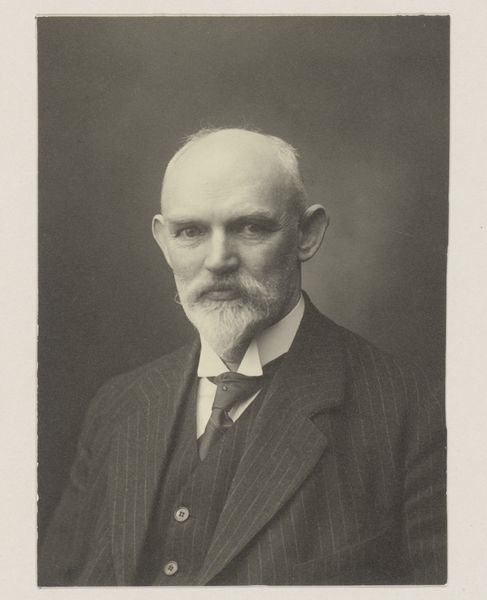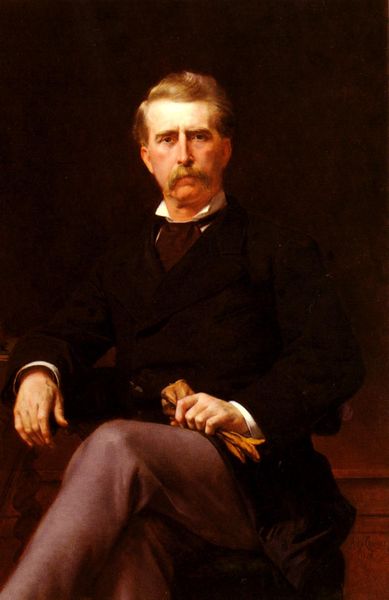
photography
#
portrait
#
portrait image
#
portrait
#
portrait subject
#
photography
#
male portrait
#
portrait reference
#
portrait head and shoulder
#
portrait drawing
#
facial portrait
#
modernism
#
fine art portrait
#
digital portrait
Copyright: Public domain
Editor: Here we have a photograph titled "August Bebel," created in 1910 by Nicola Perscheid. It strikes me as a very dignified portrait. What do you see in this piece? Curator: Dignified indeed. But more than that, I see a careful construction of power and intellect, visually reinforced through symbolic cues. Bebel, a prominent socialist, is framed within a visual language historically reserved for aristocracy. The suit, the careful lighting – they echo conventions of formal portraiture meant to convey status. Editor: So, the visual language clashes with his socialist beliefs? Curator: Not clashes, converges. Perscheid isn't just capturing Bebel's likeness but crafting a persona. He seems to be suggesting that socialist leaders deserve the same visual respect, almost like a secular saint, inviting us to ponder how we visually consecrate leadership. Do you notice anything about the direction of his gaze, or how it may relate to concepts of 'the gaze' in culture? Editor: He’s looking slightly off to the side, maybe avoiding direct confrontation, but still very observant. Almost as if…he is looking towards the future, hopeful and full of consideration. Curator: Precisely! That angle evokes foresight and wisdom, key qualities expected from a leader. By presenting Bebel in this manner, Perscheid is not only immortalizing him but also embedding a visual narrative of socialist ideals gaining prominence in society. What do you think this kind of symbolic visual language tells us about the society in 1910? Editor: It reflects the tension and interplay between traditional power structures and the rising tide of socialism. This photograph seems to negotiate that visual space, creating a powerful, almost iconic, representation of Bebel. Curator: Indeed, visual symbols like these are never neutral. They shape our understanding of history and power dynamics in very potent ways.
Comments
No comments
Be the first to comment and join the conversation on the ultimate creative platform.
